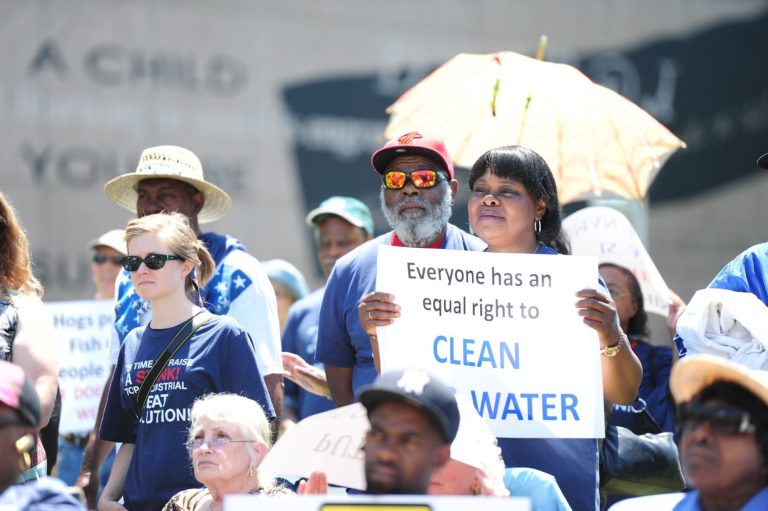North Carolina Communities Impacted by CAFOs Ask EPA to Make A Finding of Discrimination By Year’s End
By: ajcarapella

By Elizabeth Haddix, Senior Staff Attorney, UNC Center for Civil Rights
African American, Latino, and Native American residents of Eastern North Carolina are anxiously awaiting help from the Environmental Protection Agency (EPA) in their decades-long struggle to resist the adverse impacts of confined animal feeding operations (CAFOs) disproportionately concentrated in their communities. In September 2014, groups representing those residents, the Rural Empowerment Association for Community Help (REACH) and the NC Environmental Justice Network (NCEJN), joined with Waterkeeper Alliance in filing a complaint under Title VI of the Civil Rights Act of 1964 against the NC Department of Environmental Quality (DEQ) with EPA’s Office of Civil Rights (OCR). The complaint alleges that DEQ’s permitting and oversight of swine CAFOs has a racially discriminatory impact on black, Latino and American Indian North Carolinians.
OCR began its investigation of the complaint in February 2015. This past October, 20 impacted residents traveled to Washington DC to deliver a petition signed by over 95,000 people from across the country urging EPA investigators to come to eastern North Carolina and see the impacts for themselves. The residents met with OCR and with staff of North Carolina legislators, told them about the unbearable stench and pollution from the open pits of hog waste and the fields where the waste is sprayed; the infestation of buzzards, flies and other disease vectors; and the broad range of other ways these operations damage their health and ruin their quality of life. In response, OCR investigators travelled to the state and observed firsthand the impacts on these communities in mid-November. Over the last two and a half years, the complainants, represented by the Center and Earthjustice, have provided OCR with reams of documents and data (including over a decade’s worth of scientific research led by recently deceased Dr. Steve Wing of UNC’s School of Public Health), as well as sworn declarations from many impacted residents, which support the complaint’s allegations.
The community members are pleading with EPA to make a finding of discrimination before the end of 2016.